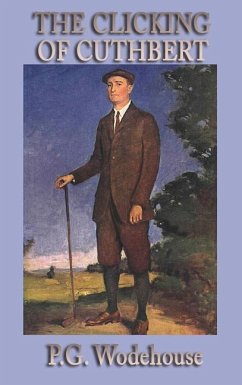
The Clicking of Cuthbert by P. G. Wodehouse, Fiction, Literary, Short Stories
Versandkostenfrei!
Versandfertig in 1-2 Wochen
16,99 €
inkl. MwSt.

PAYBACK Punkte
8 °P sammeln!
"This book marks an epoch in my literary career. It is written in blood. It is the outpouring of a soul as deeply seared by Fate's unkindness as the pretty on the dog-leg hole of the second nine was ever seared by my iron. It is the work of a very nearly desperate man, an eighteen-handicap man who has got to look extremely slippy if he doesn't want to find himself in the twenties again."














